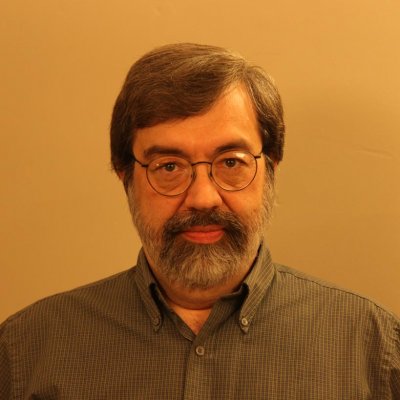David L. Hershberger
Mathematics major
Class of 1973

(1/7/2014) Senior Scientist, Continental Electronics
I am a 1973 GC math graduate. My job title is “senior scientist” but I am really an electrical engineer. I went on to the University of Illinois at Urbana for BS and MS degrees in electrical engineering. The company I work for is in Dallas, Texas, but I do my work from my home in Tahoe National Forest in northern California. Continental makes high power radio transmitters for many purposes (broadcast, scientific research, space program, etc.).
Unless you are going into academics, there are not very many jobs in pure mathematics. Rather your math education will be ancillary to another field. In my case – electrical engineering. And it will be applied mathematics.
My father (Doran Hershberger) was also a GC grad in the 1940s and he suggested that I do what he did academically. There is a great deal of overlap between math and engineering curricula. Common courses include math, physics, and humanities. By making your math electives engineering courses, and by making your engineering electives math courses, you can earn two bachelor’s degrees for perhaps one additional semester of study. This is what I did, transferring GC credits and U of I credits back and forth. My father did the same between GC and Case Western Reserve. It was good advice and I am happy to pass it on.
In my electrical engineering studies I took an elective math class at the U of I on complex variables. Complex math is used heavily in electrical engineering. Even so, my father told me that many electrical engineers do not really understand what they are doing with complex math. I would have to agree.
In modern digital signal processing, there is much more use of analytic signals today. Analytic signals are complex time-domain signals, consisting of orthogonal in-phase and quadrature components (real and imaginary). This kind of math and signal processing is used to generate digital radio signals for a wide variety of purposes – digital radio and television broadcasts, cellphones, etc. Complex math is even more important today than it was when my father was doing electrical engineering.
I have spent the last two decades heavily involved in architecting and designing systems for over-the-air digital television (HDTV) and digital radio (“HD Radio”) broadcast transmitters. This includes discrete-time, quantized systems for numerically generating the signals. It also includes software that performs linear and nonlinear adaptive precorrection of high power amplifiers and passive antenna system components. Such software makes heavy use of complex digital signal processing. I have written all of my adaptive code in Fortran, which in my opinion is superior to other languages for complex math. GNU Octave and Matlab (simulation and analysis tools) also have excellent support for applied complex math.
More recently the company I work for has been doing some non-broadcast transmitter projects. We have built radio frequency and microwave systems for nuclear research. We are now completing design and prototypes for new high power uplink transmitters for the JPL/NASA Deep Space Network. This system communicates with space probes that are far from earth, including the Voyager spacecraft which are now well beyond the orbit of Pluto. It also communicates with the Mars Curiosity rover, and probes at the inner planets. The JPL project has been a lot of fun. A few years ago when our JPL work started, a friend told me that I should watch a TV show called the “Big Bang Theory.” It is about a bunch of JPL scientists and engineers. I did not expect it to be very interesting but I watched one episode and then got hooked. However, I am happy to report that the characters on the Big Bang Theory are not like the real JPL scientists and engineers that we work with.
But I digress.
My advice is to develop career skills in another field which is tightly coupled with your math education. Any kind of engineering, physics, chemistry, or other technical field will develop synergy with strong math skills. Math will boost your expertise in a technical field and give you insights and abilities that you might not have without it.
Another pertinent example is a friend I have from Russia. He has a combined degree in physics and applied math from a University in Moscow. He lives here in California’s “Video Valley” and he writes video compression software for a local video company.
Bottom line, using your math skills professionally will probably be applied math, in support of some other discipline. Ask yourself, “What can I do with this?” Evaluate applications of your math education while you are still in college. Take some technical classes that can benefit from the math. Figure out if you can get an additional technical degree easily. Then you will be ahead of the game when you graduate.




